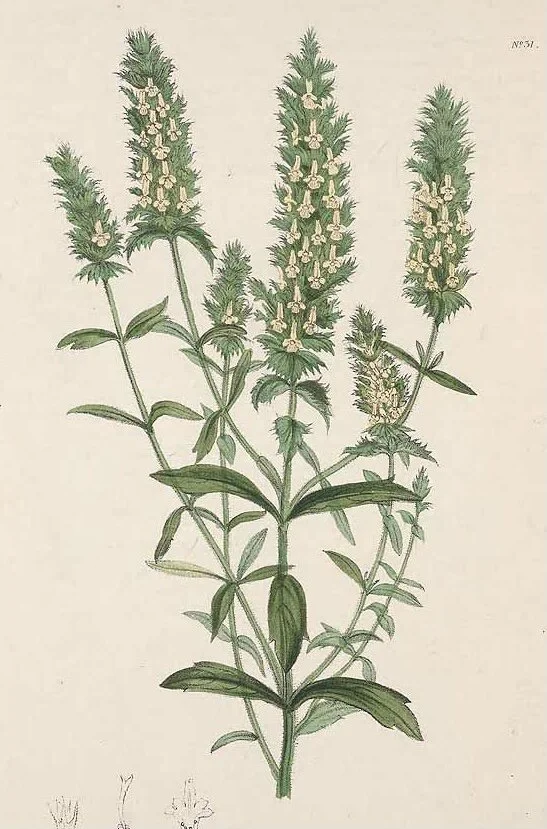Balkan Mountain Tea
Balkan Mountain Tea
BALKAN MOUNTAIN TEA
Sideritis scardica
Endemic to the central Balkan peninsula, and similar in appearance and effect to Sideritis syriaca, this ancient medicinal species has become endangered in its native habitat thanks to unethical wildcrafting.
Like Greek Mountain Tea, the foliage of this species is downy and attractive, although the leaves are narrow and the chartreuse bracts more tightly packed. All parts of the flowering plant may be dried for use as tea or tincture. Some research indicates possible value in the treatment of impaired cognitive function. In its native range this plant is prepared as a daily tea or tonic, and there are no known contraindications. Indeed, this plant produces a delicious brew. Decoction is the preferred means of preparation. Imbibe as you would tulsi or green tea.
Though some lots seem to require light stratification, these seeds will typically germinate readily when sown indoors. Lightly scarify with sandpaper before pressing seeds into moist soil, just covering with additional soil or fine vermiculite. Mist generously with warm water. Cover with plastic. Kept warm and moist in bright light, seeds germinate in a week or so. Prick out once seedlings have true leaves to grow on in individual containers or cells in bright light at warm room temperature. Harden off before transplanting outdoors after the last spring frost. If no germination after two weeks pop the pot into the refrigerator for 2-4 weeks and return to warm room temperature in bright light. Take care to keep soil moist and check for germination frequently!
This species requires full sun and sharply drained soils to thrive. It does not tolerate wet feet and will rarely bloom if coddled. Self-sowing semi-perennial in zone 6 and warmer but easily grown as an annual in the north if started early indoors. Suitable for container culture.
Packet contains at least 30 seeds.
